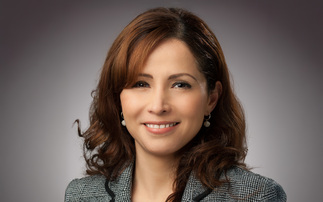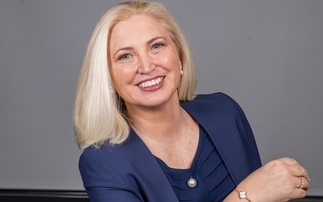Royal London Asset Management’s (RLAM’s) Mike Fox and Ashley Hamilton Claxton on some dangers inherent in the new push to quantify and define sustainable investing – and some strategic opportunities.
The growth of responsible and sustainable investing is changing the shape of the investment industry and could prove critical in supporting the transition to a lower carbon and more socially just world. But a new push in the sector to quantify and define sustainable investing more tightly will bring challenges as well as strengths, say RLAM's Mike Fox, Head of Sustainable Investments, and Ashley Hamilton Claxton, Head of Responsible Investment.
Fox thinks there is some danger that numbers will take priority over more subtle word-based judgements. "Words are inconvenient because they're unstructured - you can't spreadsheet them and they can mean different things," he says. "If you're trying to come up with a low-cost, scalable solution, words are a nightmare - you just want a set of data to crunch and create a sustainable portfolio around."
"But we're buying companies that exist in the real world," he says, "and to think that you can entirely numericise those companies during the sustainability analysis and attribute no value to the words that provide context to the sustainability numbers is, I think, profoundly wrong."
NAME GAME
Words, however, can themselves be a problem at the point of sale. "We're at this really messy part of the market's evolution," says Hamilton Claxton, "where there's lots of ‘funny' marketing going on - clients are confused, some fund managers are confused - and regulators want to get their arms around that for good reason."
Asset managers that claim to be investing sustainably, and the ESG rating companies that many of them depend upon, are coming under intense scrutiny, as regulators and the press hunt for eye-catching discrepancies between how the sustainability of a company has been assessed by different parties - and between a company's rating and its real-world behaviour.
"We're paranoid that sustainable investing becomes perceived as a fad or a bubble," says Fox, who has spent decades trying to convince people to invest more sustainably. "There are profound social and environmental benefits from sustainable investing," he says, "so its integrity must not be diluted and discredited."
SOCIAL SPIRIT
Stricter regulatory definitions and disclosure rules are now arriving, but the team wonder if these could prove to be a double-edged sword. "The challenge is whether the regulators can really capture all the nuances of sustainability within those narrow regulatory definitions," says Hamilton Claxton.
"The way we run our sustainable funds is very much in the spirit of the landmark Brundtland report published in 1987," she explains, "in that it is all about the net benefit to society and taking a holistic view, rather than targeting the deepest green in purely environmental terms. It's frustrating that the new EU Sustainable Finance Disclosure Regulation (SFDR), for example, uses a definition of sustainability that, to us, seems in many ways green with a bit of social tacked on the side."
SUBTLE SUCCESS
Fox sees a market contradiction developing. "As the definitions of sustainability narrow, and reduce the investment universe," he says, "stocks within that definition will become more expensive, partly because they offer an easier narrative to clients in terms of their sustainability." But he's been investing long enough to know there are times you don't join the crowd.
"Over the next 3-5 years, sustainable funds like ours may need to spend more time finding the non-obvious - the investments that are genuinely sustainable but do not get picked up by simple taxonomies or third-party ESG ratings."
"We're planning for what comes next as sustainability matures - as it becomes more subtle, more nuanced, and in some ways more difficult," he says. "Our bet is that we have the skills, in-house resources and long-standing credibility with investors to look beyond the obvious in the pursuit of both sustainable and financial rewards"
Click here to read more from the RLAM team on how values-based investment and key engagement themes are evolving - and the strategic implications
INVESTMENT RISKS
Past performance is not a guide to future performance. The value of investments and the income from them may go down as well as up and is not guaranteed. Investors may not get back the amount invested.
IMPORTANT INFORMATION
For professional clients only, not suitable for retail clients. This is a financial promotion and is not investment advice. The views expressed are those of the contributors at the date of publication unless otherwise indicated, which are subject to change, and are not investment advice.
Issued in July 2021 by Royal London Asset Management Limited, 55 Gracechurch Street, London, EC3V 0RL. Authorised and regulated by the Financial Conduct Authority, firm reference number 141665. A subsidiary of The Royal London Mutual Insurance Society Limited.












